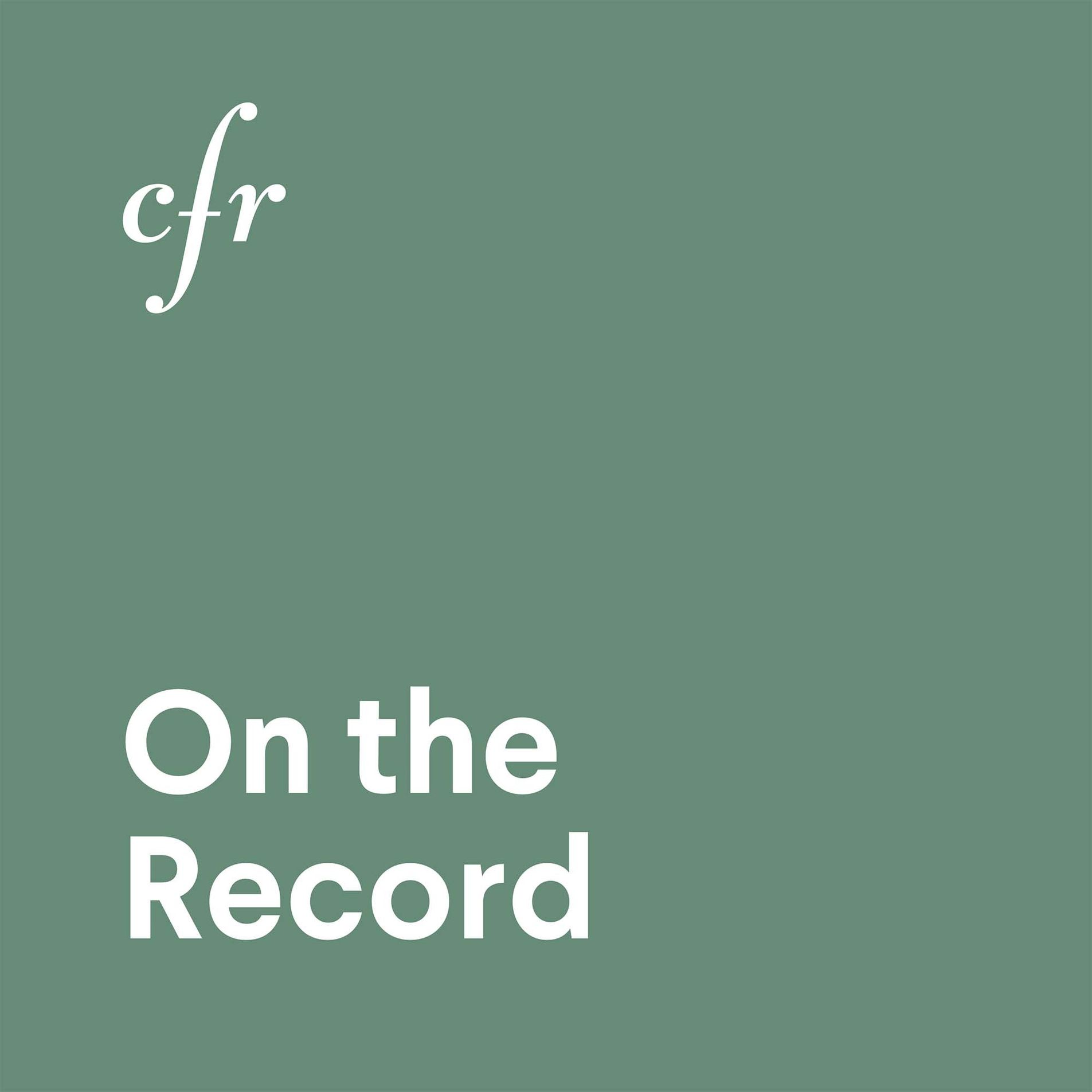Higher Education Webinar: Navigating Academic Discourse on Israel and Palestine
Description
Tarek El-Ariss, James Wright professor and chair of Middle Eastern studies at Dartmouth College, and Susannah Heschel, Eli M. Black distinguished professor of Jewish studies at Dartmouth College, lead the conversation on navigating academic discourse on Israel and Palestine.
FASKIANOS: Welcome to CFR’s Higher Education Webinar. I’m Irina Faskianos, vice president of the National Program and Outreach here at CFR.
Today’s discussion is on the record and the video and transcript will be available on our website, CFR.org/academic, if you’d like to share it with your colleagues. As always, CFR takes no institutional positions on matters of policy.
We’re delighted to have Tarek El-Ariss and Susannah Heschel with us to talk about navigating academic discourse on Israel and Palestine. Tarek El-Ariss is the James Wright professor and chair of Middle Eastern studies at Dartmouth College. Susannah Heschel is the Eli M. Black distinguished professor of Jewish studies at Dartmouth College. And they teach together a class at Dartmouth called “The Arab, the Jew, and Constructions of Modernity.”
So, with that, I’m going to turn the conversation over to them to talk about how they teach this class, and how they’ve worked together to address discourse on Israel and Palestine in Dartmouth, and best practices, as we all think about how to discuss these issues. So, over to both of you. Thank you for being with us.
EL-ARISS: Thank you, Irina.
Just to backtrack a little bit on the idea of the class, and our collaboration, I’m originally from Beirut. I’m trained in philosophy and literary studies. And I grew up during the civil war. And what we’re going through right now is extremely difficult to watch, to engage in, but this is something that we need to do. And this is something that I’ve been very interested in thinking about. And I just wrote a book on the subject, called Water on Fire: A Memoir of War, which really starts in Beirut, what was then called West Beirut, and ends in New York on 9/11, where I was actually teaching a course on the Middle East at NYU. And specifically on that day, I was teaching a course—a class on Islam. And needless to say, that these crises, these catastrophic events that happen from the region that I’m associated with, where I come, has been really fundamental to the way I think about scholarship, to the way I think about pedagogy, the way I think also about teaching and the community building that I think is really fundamental for the conversation today.
So, I just wanted to kind of situate that within that context. And how do you think and deal with these questions? And how do you incorporate them? And where does the personal scholarship and the pedagogical engagement come, and so on? My work has been really dealing also with the question of the universal and the questions of the Enlightenment tradition. I mean, this is very important, and questions of modernity. Also wrote on the subject in the context of Arab modernity, in the context of what’s called the Nahda, or the nineteenth century Arab renaissance, and which is this kind of engagement with European modernity. So, this question of the universal, or the experience, of the European enlightenment tradition and how it kind of affects different parts of the world, how it allowed us to understand questions of human rights or questions of the universality is also at the core of this conversation here, and also of my intellectual training. So, this question has been really fundamental.
I’ve also been interested in how a lot of these Arab intellectuals and scholars went to Europe in the beginning of the nineteenth century, and how they experienced this modernity. And that is not just simply an intellectual experience where they’re thinking about the ideas of the West and trying to translate them or reject them or accept them, but it is also an embodied experience. It’s also—I’ve been working on this question of t
More Episodes
This year NATO celebrates seventy-five years of collective defense, expanding from twelve founding members in 1949 to thirty-two today.
Panelists discuss the evolution of NATO as it has sought to adapt to geopolitical shifts throughout the years, the challenges it faces in responding to global...
Published 04/24/24
Published 04/24/24
The PBS series Changing Planet embarks on its third year of this seven-year project examining the issues facing the planet’s most threatened ecosystems. The “Coral Special” episode takes us to the Maldives for an in-depth look at coral reefs and the urgent efforts to help them survive climate...
Published 04/12/24


